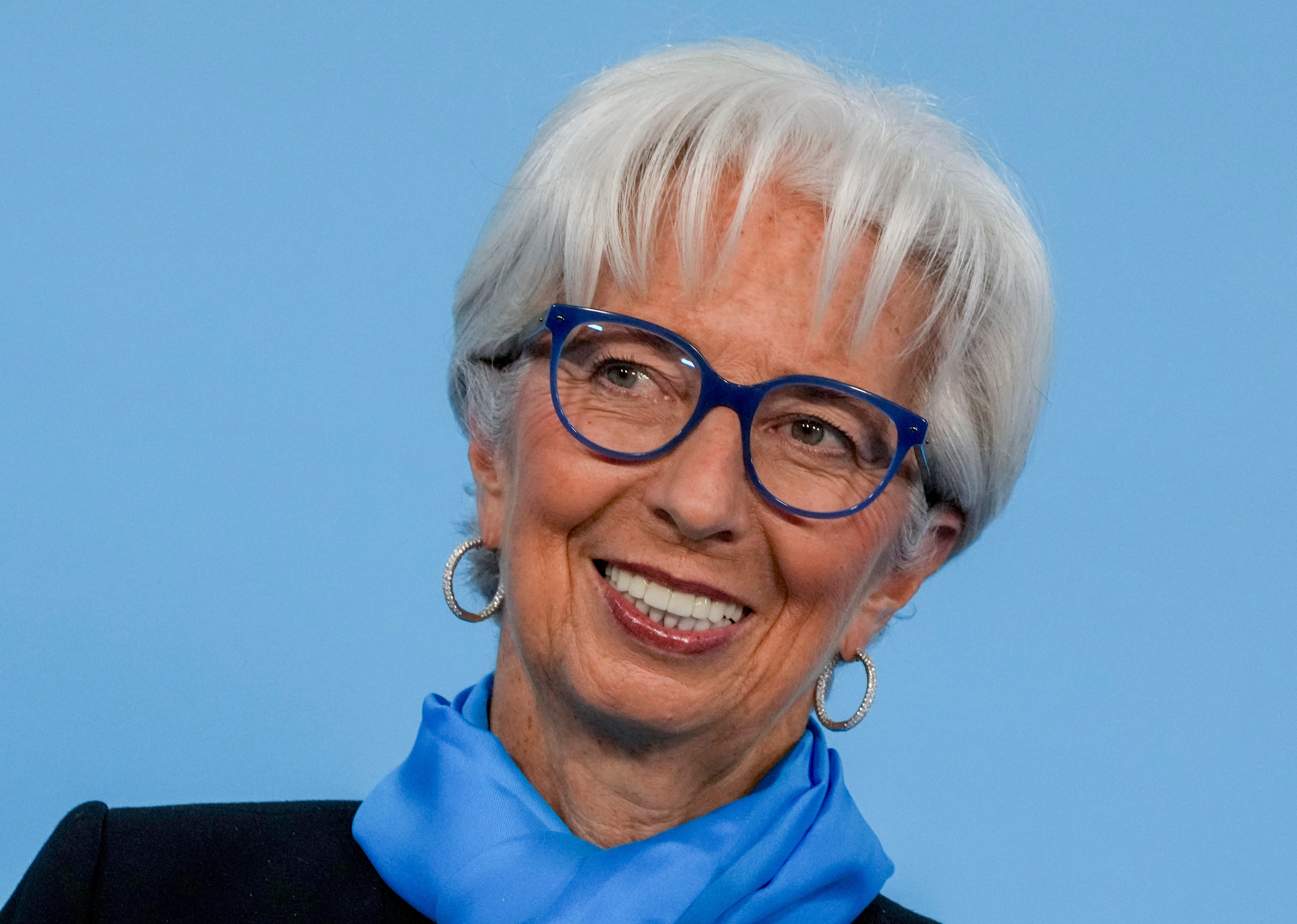Europe faces tough call on stimulus amid omicron fears
The European Central Bank is facing a tough decision Thursday

Your support helps us to tell the story
From reproductive rights to climate change to Big Tech, The Independent is on the ground when the story is developing. Whether it's investigating the financials of Elon Musk's pro-Trump PAC or producing our latest documentary, 'The A Word', which shines a light on the American women fighting for reproductive rights, we know how important it is to parse out the facts from the messaging.
At such a critical moment in US history, we need reporters on the ground. Your donation allows us to keep sending journalists to speak to both sides of the story.
The Independent is trusted by Americans across the entire political spectrum. And unlike many other quality news outlets, we choose not to lock Americans out of our reporting and analysis with paywalls. We believe quality journalism should be available to everyone, paid for by those who can afford it.
Your support makes all the difference.The European Central Bank is being pulled two ways: It's caught between a scheduled end of its pandemic stimulus and growing alarm about the new omicron variant of the coronavirus even as other central banks around the world decide to take steps to combat soaring consumer prices.
The dilemma faced by the bank and President Christine Lagarde at their meeting Thursday in Frankfurt is compounded by an wave of infections caused by the earlier delta variant. On top of that, persistent shortages of parts and raw materials also are contributing to a late-year slowdown of the recovery in the 19 European Union countries that use the euro.
Many questions are unanswered about the fast-spreading omicron variant, including whether it can evade vaccines and the likelihood of severe illness. That makes the outcome of Thursday's European Central Bank meeting harder to predict than usual, analysts say.
“Rarely has the backdrop for a major ECB decision been as uncomfortable and as uncertain as it is now,” analysts at Berenberg bank said.
With the eurozone economy within 0.3% of its pre-pandemic level and inflation at a record high of 4.9%, there are factors pushing “in favor of reducing the monetary stimulus significantly and fast," the Berenberg analysts said. “However, the recent surge in infections in core Europe and the rapid spread of the omicron variant ... are casting a dark shadow over the near-term outlook for the eurozone.”
Analysts say the bank's governing council will probably confirm that a 1.85 trillion euro ($2.08 trillion) bond purchase stimulus will end as scheduled in March 2022. But the bank could decide to maintain part of the pandemic stimulus by moving some of the bond purchases to a preexisting program. It could also promise to restart the pandemic program if needed.
The bond purchases drive down longer-term borrowing rates and aim to keep financing affordable so businesses can get through the pandemic slowdown.
The Bank of England faces a similar tough decision Thursday between higher inflation and worries about omicron. Analysts say an increase in the bank’s benchmark rate is possible. If it were to raise rates, it would be the first central bank within the world’s leading advanced economies to do so since the pandemic began.
Analysts don't expect a first European Central Bank interest rate increase from record lows until well into 2023, a year or more behind expectations for the U.S. Federal Reserve's rate liftoff.
The Fed has decided to speed up its exit from pandemic crisis support, saying Wednesday it would reduce its monthly bond purchases at twice the pace it had previously set and will likely end them in March. That puts the Fed on a path to start raising rates as early as the first half of next year.
In the eurozone, inflation is well above the European bank's goal of 2%, but bank officials and many economists say the spike in consumer prices is temporary and will likely ease next year. The bank's most recent staff projections foresee inflation of only 1.5% in 2023. New forecasts, including the first inflation outlook for 2024, are due at Thursday's meeting.
It’s a different situation than that faced by the Fed, where U.S. stimulus and infrastructure spending on top of a robust rebound in growth have resulted in stronger inflation pressures.
The eurozone economy grew 2.2% in the third quarter from the previous quarter, but economists say that pace has already slowed significantly due to parts shortages and higher virus cases that discourage face-to-face indoor activity and add burdens on travel.